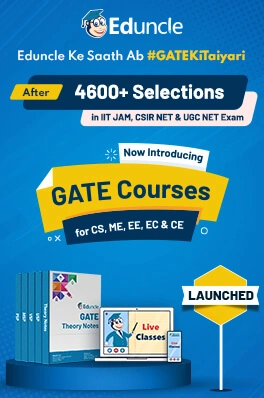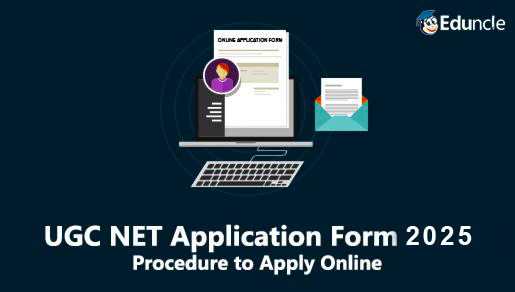UGC NET Paper 1 holds 100 marks of the entire question paper. Covering the most important topics of this section itself can get you 60+ scores in the exam. So why don’t you go ahead and hit the important topics with a bang.
Here, we have provided you the complete details of one of the most important topics of UGC NET Paper 1 i.e. ‘Top Government Bodies in India’. This topic includes the recently formed Government Bodies as well as Other National Bodies in India.
Based on the analysis of UGC NET Previous Papers, our experts have found that this chapter contains topics like Power, Compositions & Functions of Government Bodies in the exam.
Free Download UGC NET Sample Study Notes
List of Top Government Bodies of India
To help the candidates with UGC NET Preparation, we have listed out the important government bodies of India.
The questions asked are most frequently regarding the functions, power, managing body, and other details of top government bodies of India.
Check the list below:
Comptroller and Auditor General of India (CAG)
Union Public Service Commission (UPSC)
Staff Selection Commission (SSC)
Indian Council of Agricultural Research (ICAR)
Central Bureau of Investigation (CBI)
Telecom Regulatory Authority of India (TRAI)
Indian Space Research Organization (ISRO)
Centre for Development of Advanced Computing (C-DAC)
1. National Testing Agency
HRD and Union Council of Ministers has approved the establishment of an autonomous organization to conduct entrance examinations for higher educational institutes such as IIT JEE, UGC NET, CSIR NET, ICMR etc. The National Testing Agency (NTA) is formed to make sure the quality and equity in education.
The members of NTA will be appointed by the Ministry of Human Resource Development who are education administrators, subject experts, researchers, and assessment developers.
Read more information here – NTA Replaces CBSE.
Objectives:
To conduct efficient, transparent, and international standards tests, in order to assess the competency of candidates for admission and recruitment purposes.
To undertake research on educational, professional, and testing systems.
Identifying the lacks in the knowledge systems and take the required actions to improve it.
To identify experts and institutions for setting exam papers.
To research on education and professional development standards.
Functions:
To identify partner institutions with adequate infrastructure from the existing schools and higher education institutions which would facilitate the conduct of online examinations without adversely impacting their academic routine.
To create a question bank for all subjects using modern techniques.
To establish a strong R&D culture as well as a pool of experts in different aspects of testing.
To help in the training and quality testing services to the academic institutions in India.
NTA has also started providing FREE Coaching to UGC NET & JEE Students.
To develop a state of the art culture of testing in India by using domestic and international expertise and collaborate with international organizations like ETS to achieve the same.
To undertake any other examination that is entrusted to NTA by the Ministries/Departments of Government of India/State Governments.
To undertake the reforms and training of school boards as well as other bodies where the testing standards should be comparable with the entrance examinations.
2. Comptroller and Auditor General of India (CAG)
CAG is a constitutional authority under article 148, established to audit the expenditures of the Government of India, State Government and funds of people. The CAG is nominated by the Prime Minister of India and appointed by President of India.
Former Home Secretary Shri Rajiv Mehrishi has been appointed as a new Comptroller and Auditor General of India.
Functions:
Managing receipts and expenditure from the Consolidated Fund of India, State and Union Territory having a legislative assembly.
Grants and loans are given by Government to bodies and authorities for specific purposes.
Public sector auditing and accounting with balanced and timely reporting on public finance and governance.
To audit trading, manufacturing, profit & loss accounts, balance sheets, other subsidiary accounts and stock kept in Government offices or departments.
3. NITI Aayog
NITI Aayog serves as a Think Tank of the Government of India to provide strategic and technical advice across the spectrum of key elements of the policy.
It replaced the planning commission with the aim of achieving Sustainable Development Goals and to enhance cooperative federalism by fostering the involvement of State Governments of India in the economic policy-making process.
Functions:
To pay special attention to the sections of our society that may be at risk of not benefitting adequately from economic progress.
To actively monitor and evaluate the implementation of programmes and initiatives, including the identification of the needed resources to strengthen the probability of success and scope of delivery.
To focus on technology up-gradation and capacity building for the implementation of programmes and initiatives.
To evolve a shared vision of national development priorities, sectors, and strategies with the active involvement of States in the light of national objectives.
Download Free Study Plan & Boost your Learning
4. Union Public Service Commission (UPSC)
UPSC is a central recruitment agency which conducts various exams for the selection of candidates for government departments and ministries.
The Civil Services and exam for group A or B of central services are conducted by UPSC.
Functions:
Appointment of officers on promotion / deputation / absorption.
Advising the Government on any matter referred to the Commission by the President of India.
Framing and amendment of Recruitment Rules for various services and posts under the Government.
Conduct examinations for appointments to the services of the Union.
Direct recruitment by selection through interviews.
Disciplinary cases relating to different Civil Services.
Refer the following link to know more about various recruitment Exams & vacancies: Upcoming Government Jobs.
5. NABARD
NABARD works as the financial institution of India for the planning and operations in the field of credit for agriculture and other economic activities in rural areas in India.
NABARD stands for National Bank For Agriculture & Rural Development. The main objective of NABARD is to build rural India empowered and financially inclusive through specific goal-oriented departments categorized as financial, developmental, and supervision divisions.
Functions:
Provide refinance support to build rural infrastructure.
To prepare district level credit plans for guiding and motivating the banking industry in achieving rural improvement targets.
Supervise Cooperative Banks and Regional Rural Banks (RRBs) to help them develop sound banking practices.
To design new schemes for the implementation of government development schemes.
Train handicraft artisans to provide them with a marketing platform for selling the articles.
6. Staff Selection Commission (SSC)
SSC is a government organization which conducts recruitment exams for the selection of Grade B or C Level Officers in the various departments or ministries. SSC also organizes various exams to recruit candidates for Non-Gazetted Officers or clerical level posts.
Functions:
Conduct examinations and interviews for recruitment to the various posts.
Organize Departmental Examination for promotion.
The Commission conducts periodical Typewriting Tests in English and Hindi.
7. Attorney General of India
The Attorney General for India is the Chief Legal Advisor of the GOI and is a primary lawyer in the Supreme Court. The Attorney General is necessary for giving advice to the Government in legal matters.
The first Attorney General for India was Shri M.C. Setalvad while 15th and current Attorney General is Shri K. K. Venugopal appointed by then-President Pranab Mukherjee.
Functions:
The Attorney General gives advice to the Government of India in legal matters.
He performs legal duties assigned to him by the President.
The Attorney General can participate in proceedings of the Parliament without the right to vote.
The Attorney General cannot appear against the Government of India.
The Attorney General appears on behalf of the Government of India for all cases (including suits, appeals and other proceedings) in the Supreme Court.
8. Telecom Commission
The Telecom Commission was set up by the Government of India after the Resolution dated 11th April 1989 to deal with various aspects of Telecommunications.
The Telecom Commission is responsible for:
Formulating the policy of the Department of Telecommunications for approval of the Government.
Preparing the budget for the Department of Telecommunications for each financial year and getting it approved by the Government.
Implementation of the Government's policies in all matters concerning telecommunication.
Functions:
To provide secure, reliable affordable and high-quality converges telecommunication services anytime, anywhere for an accelerated inclusive socio-economic development.
The department is also responsible for the grant of licenses for various telecom services like Unified Access Service Internet and VSAT service.
The department is also responsible for frequency management in the field of radio communication in close coordination with international bodies.
Promotion of standardization, research and development in telecommunications.
Financial assistance for the furtherance of research and study in telecommunication technology and for building up adequately trained manpower for the telecom programme.
9. Election Commission
The Election Commission of India is an autonomous constitutional authority responsible for administering election processes in India. The body administers elections to the Lok Sabha, Rajya Sabha, State Legislative Assemblies in India, and the offices of the President and Vice President in the country.
Functions:
The Election Commission prepares, maintains and periodically updates the Electoral Rolls, which shows who is entitled to vote, supervises the nomination of candidates, registers political parties, monitors the election campaign.
The election commission has the right to approve symbols to the political parties.
It also facilitates the coverage of the election process by the media, organizes the polling booths where voting takes place and looks after the counting of votes and the declaration of results.
All this is done to ensure that elections can take place in an orderly and fair manner.
The Commission decides most matters by consensus but in case of any dissension, the majority view prevails.
10. Finance Commission
The Finance Commission was established to define the financial relations between the Central Government of India and the individual state governments.
As per the Constitution, the Commission is appointed every five years and consists of a chairman and four other members.
Functions:
Distribution of net proceeds of taxes between Center and the States, to be divided as per their respective contributions to the taxes.
Determine factors governing Grants-in-Aid to the states and the magnitude of the same.
To make recommendations to the President by the commission in the interest of sound finance.
Keep reading to know the details and important functions of various apex bodies by scrolling down the blog.
11. Indian Council of Agricultural Research (ICAR)
ICAR is an autonomous body that is responsible for Education and Research related to Agriculture in India. The apex body is established for coordinating, managing research, and education in Agriculture including Horticulture, Fisheries, and Animal Science in the country.
ICAR is one of the largest networks of Agriculture Education and Research Institutes in the world. The ICAR network includes 6 Deemed Universities, 64 ICAR Institutions, 15 National Research Centres, 6 National Bureaus, 25 Directorates.
Functions:
To plan, undertake, aid, promote and coordinate education, research and its application in agriculture, animal science, fisheries and allied sciences.
To provide, undertake and promote consultancy services in the field of research, education, training, and broadcasting of information in agriculture and related field.
To plan and update innovation-led strategies from time to time and sustainable agricultural growth in the country.
Also, Check out the scholarship and fellowship award for research here: UGC NET Scholarship
12. Central Bureau of Investigation (CBI)
CBI is the federal investigative agency in the country, with a dual responsibility to investigate critical cases and provide direction to Police forces across the country to fight against corruption.
The CBI is headed by a Director who is generally an IPS officer with a rank of Director General of Police. CBI includes the following divisions:
Anti-Corruption Division
Economic Offences Division
Special Crimes Division
Policy and Cooperation Division
Administration Division
Directorate of Prosecution
Central Forensic Science Laboratory
Functions:
To investigate serious crimes, having national and international ramifications, committed by professional criminals.
To coordinate the activities of the anti-corruption agencies and the various state police forces.
To take any case of public importance for investigation on the state government request.
To maintaining crime statistics and circulating criminal information.
13. Telecom Regulatory Authority of India (TRAI)
The Telecom Regulatory Authority of India is an independent regulatory body established by the Telecom Regulatory Authority of India Act 1997 to regulate telecommunication services, adjudicate disputes, dispose appeals of the service providers and the consumers.
Functions:
Regulate the terms and conditions of the license to service providers.
General administrative and regulatory functions.
To ensure the service quality provided to customers.
Fixing tariffs and rates for telecom services.
Any other functions entrusted by the Central Government.
14. Indian Space Research Organization (ISRO)
The Indian Space Research Organization (ISRO) is the premier space agency of the Government of India established in 1969. ISRO is administrated by the Department of Space of the Indian government and it is the sixth-largest space agency in the world.
The ISRO plays a major role in managing logistics in various fields of administration, management, and industries as given below.
Functions:
To design and develop launch vehicles and related technologies for providing access to space.
To design and develop national satellites and related technologies for earth observation, communication, navigation, meteorology, and space science.
Indian National Satellite (INSAT) programme for meeting telecommunication, television broadcasting, and developmental applications.
Space-based Applications for Societal development.
Research and Development in space science and planetary exploration.
15. Centre for Development of Advanced Computing (C-DAC)
Centre for Development of Advanced Computing (C-DAC) is the premier R&D organization of the Ministry of Electronics and Information Technology (MeitY) for carrying out R&D in IT, Electronics and associated areas.
Functions:
The vision of C-DAC is to emerge as the premier R&D institution for the design, development and deployment of world-class electronic and IT solutions for economic and human advancement.
Evolve technology solutions - architectures, systems and standards for nationally important problems.
Bring benefits of Electronics and Information Technology to society.
Utilize the Intellectual Property by converting it to business opportunity.
In the blog, we have discussed the top 15 Government bodies that are important for the UGC NET exam. So, you must be aware of the functions, compositions, and other related information of these government bodies.
The questions can be asked in the UGC NET exam from these top government bodies of India. You must have a brief knowledge of these major government bodies.
Hope the article will help you to prepare for the UGC NET Paper 1. If you have more information or any queries, feel free to share it with us in the comment section below.
Thank You!!


















 >
>






